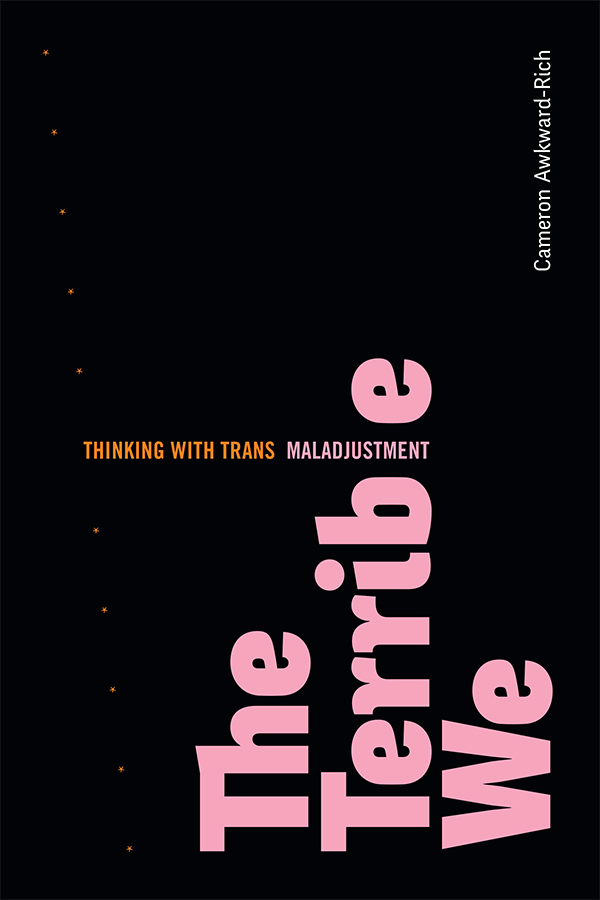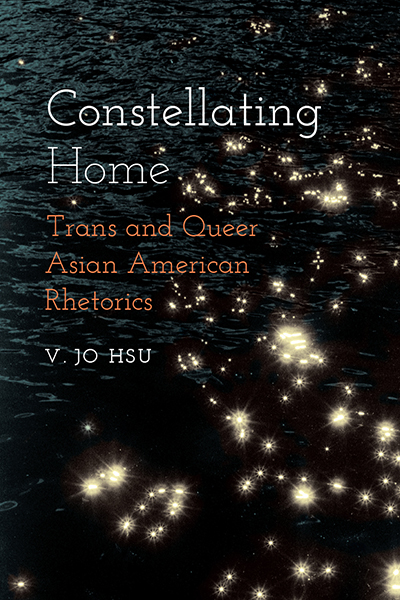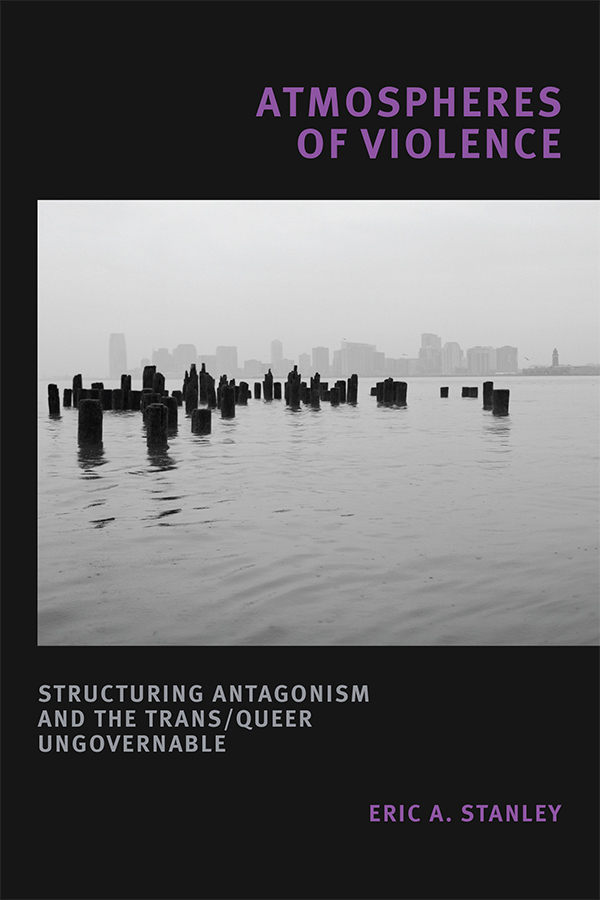Simultaneously a project of metacritical reflections about disciplinary foundations at the intersections of the academic fields of transgender studies, disability studies, and Black feminist studies, and a series of close readings of cultural texts and artifacts central to those disciplinary developments, Awkward-Rich’s book is intellectually generous, beautifully written, and deftly argued. Critically investigating the production of disability and transgender theories, forged interdependently and through distancing trans authority from the specter of madness and disability, The Terrible We traces conflicts among trans, queer, and feminist perspectives in closely reading foundational texts and cultural contexts. It presents an invitation to consider forms of maladjustment a productive resource rather than an impediment to trans life, thought, and creativity.
Keyword: trans studies
Review of Constellating Home: Trans and Queer Asian American Rhetorics by V. Jo Hsu (The Ohio State University Press)
Constellating Home: Trans and Queer Asian American Rhetorics by V. Jo Hsu examines how queer and trans Asian American (QTAPI) individuals have reshaped the narratives around their belonging in the United States or elsewhere. Hsu recognizes the ways pervasive narratives like the model minority myth have imbued the meaning of Asian American belonging with capitalist, heteronormative, ableist, racist, and patriarchal notions. Exploring oral histories, visual representations, essays, and numerous other forms of rhetoric, Hsu engages in “diasporic listening,” a method that unpacks how QTAPI individuals have wrestled with these pervasive narratives and found ways of redefining their belonging. By focusing on the stories of trans, nonbinary, disabled, and other minoritized groups within the Asian American diaspora, Hsu shows how these diverse and individual stories contribute more robust meaning around being and belonging as an Asian American.
Review of Atmospheres of Violence: Structuring Antagonism and the Trans/Queer Ungovernable by Eric A. Stanley (Duke University Press)
Eric A. Stanley’s Atmospheres of Violence: Structuring Antagonism and the Trans/Queer Ungovernable delves into the spectacle and disappearance that racialized anti-trans/queer violence produces. Stanley’s method is archival. By putting surveillance tapes, letters, films, and direct actions side by side, they trace structuring logics of modernity while emphasizing trans/queer practices that have and do escape such violent worlds. While this book underscores violence, hurt, and loss, it is more accurate to classify it as a text that tenaciously holds onto the possibility of livable worlds otherwise.
Review of Transgender Marxism edited by Jules Joanne Gleeson and Elle O’Rourke (Pluto Press)
Transgender Marxism is a provocative and groundbreaking union of trans studies and Marxist theory. Exploring trans lives and movements, the authors delve into the experience of trans survival and movement solidarity under capitalism. They explore the pressures, oppression, and state persecution faced by trans people living in capitalist societies, and their tenuous positions in the workplace and the home. The authors give a powerful response to right-wing scaremongering against “gender ideology.” Reflecting on the relations between gender and labor, these essays reveal the structure of antagonisms faced by gender non-conforming people within society. Looking at the history of trans movements, Marxist interventions into developmental theory, psychoanalysis, and workplace ethnography, the authors conclude that in order to achieve trans liberation, capitalism must be abolished.
Review of Trans Care by Hil Malatino (University of Minnesota Press)
Hil Malatino’s short book Trans Care critiques the heteronormativity of dominant theorizations of care. By taking trans lives seriously, he shows how trans care webs form the basis of trans survival. Malatino deftly weaves together the insights of trans studies and activism with care feminism to explore the archive, cultural production, healthcare, and politics. He broadens feminist and left perspectives on care and brings care from the margins into the center of trans studies. Trans Care is a plea for stronger, more egalitarian, and solidaristic relations of care.




